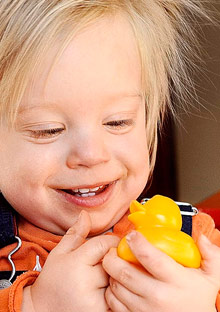Is Breast Milk Covered by Health Insurance?

Photo: Jessica Todd Harper
No one would refuse a sick baby the best medical care, right? That's what the parents of one of the preemies who received Lynn Page's breast milk thought—until their insurance claim was rejected.
When Julie Montemurno found out, in December 2006, that she was pregnant, she and her husband, John, were in the process of adopting a child from Guatemala. They were committed to the little girl—they'd seen pictures of her already—so in June, when Julie was seven months pregnant, they traveled to Guatemala City with their 3-year-old, Hannah, to bring home 15-month-old Maisie. For four days, everything went smoothly. But the night before they were scheduled to fly home to Maine, Julie was rushed to the hospital; three days later, she was on an air ambulance to Houston. She had developed preeclampsia, pregnancy-induced hypertension, a potentially fatal condition whose only cure is delivery. "We have to take the baby" is the last thing she remembers being told before blacking out. Peter Gabriel Montemurno—Gabriel, to his family—was delivered by emergency C-section the next day, 10 weeks premature. Julie had planned to breastfeed, but Gabriel was too weak to nurse, she was too sick to pump, and in any case, her medications would have tainted her milk.
Then the nurses told John, "You know, there's a mothers' milk bank in Austin."
John had never heard of milk banks, but once he learned that donors are screened and that their milk is pasteurized, he got a prescription (all 11 of the banks in the Human Milk Banking Association of North America require a prescription in order to dispense milk). During the seven weeks Gabriel remained hospitalized in Texas, he received milk from the Austin bank. In August, when Gabriel was cleared to go home, John arranged to start getting milk from WakeMed Mothers' Milk Bank in Raleigh, North Carolina, which serves the East Coast.
The package that arrived on the Montemurnos' front porch the day after they got home—containing 480 ounces of frozen breast milk, including milk supplied by Lynn Page—was enough to feed Gabriel for two weeks. It cost $1,559.75, which Julie and John charged to their credit card. WakeMed and the other HMBANA banks are nonprofits, and are not in the habit of giving away milk; though the mothers who supply them aren't paid, screening donors and collecting, processing, and shipping milk is costly. However, WakeMed offers a 30 percent discount to families who pay in full within 30 days. Julie and John took advantage of that deal.
The Montemurnos aren't wealthy. He is a navy lieutenant; she, a stay-at-home mom. From the first, they'd hoped to be reimbursed for the milk. They had a letter from one of the doctors who'd attended Gabriel in the intensive care unit, listing nine diagnoses (ranging from anemia of prematurity to suspected sepsis to risk for necrotizing enterocolitis, a condition that strikes mostly preemies and causes portions of the intestines to die), and concluding, "...it is imperative that he receive donor breast milk, since Mrs. Montemurno is unable to breastfeed." But Tricare—the healthcare program that insures members of the military and their families—denied coverage.
John and Julie submitted an appeal, with more letters of support. One doctor pointed out that for ill or preterm infants, "human milk is not just nutrition; it is a vital medicine" (preterm infants fed human milk have a lower risk for sepsis and necrotizing enterocolitis, and spend fewer days in the hospital). Another was more blunt: "After practicing for 32 years, I am still not able to understand the thought processes insurance companies use. ... [T]he decision not to cover the cost of donor breast milk for this family [is] one of the most illogical I have ever encountered."



